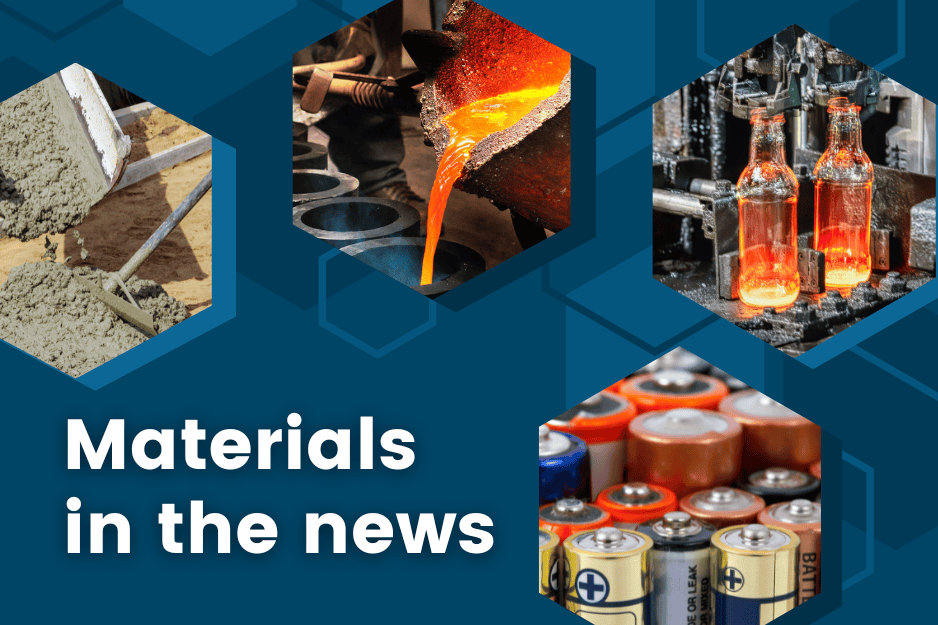
[Images above] Credit: NIST
NANOMATERIALS
Graphene records record-high magnetoresistance
Researchers from The University of Manchester report record-high magnetoresistance that appears in graphene under ambient conditions.
Molding of nanowires spurs unanticipated phases
Cornell University researchers used the relatively straightforward process of thermomechanical nanomolding to create single-crystalline nanowires that can enable metastable phases that would otherwise be difficult to achieve with conventional methods.
Physicists discover first transformable nanoscale electronic devices
Physicists at the University of California, Irvine, reported the discovery of nanoscale devices made of gold wires and graphene that can transform into many different shapes and sizes even though they exist in solid states.
ENERGY
Natural clay additive promises gains in perovskite solar cell efficiency and stability
Scientists at Konya Technical University in Turkey demonstrated that adding sepiolite, a naturally occurring clay substance, to perovskite precursor materials leads to formation of a scaffold layer that improves efficiency and stability of perovskite solar cells. Cells with an initial maximum efficiency of 7.92% jumped to a maximum efficiency of more than 16%.
The hottest new climate technology is bricks
A handful of startups think bricks that hold heat could be the key to bringing renewable energy to some of the world’s biggest polluters, MIT Technology Review reports.
BIOMATERIALS
Graphene ‘tattoo’ treats cardiac arrhythmia with light
Researchers led by Northwestern University and the University of Texas at Austin developed a cardiac implant made from graphene. Testing with a rat model demonstrated that the implant could sense irregular heart rhythms and then deliver electrical stimulation through a series of pulses without constraining or altering the heart’s natural motions.
ENVIRONMENT
Nuclear wastewater from the Fukushima plant is to be released into the Pacific
Sometime in the next few months, more than a million tonnes of treated radioactive water from Japan’s ruined Fukushima nuclear reactor will begin to be pumped into the Pacific Ocean. The Tokyo Electric Power Company and the Japanese government say the water is safe. Some environmentalists think more research is needed.
MANUFACTURING
Researchers combine electric poling and 3D printing into a single step
Purdue University researchers combined 3D printing and electric poling into a single process called electric poling-assisted additive manufacturing. This process aligns the dipoles in polyvinylidene difluoride filament during the print, which leads to a better indication of stress that is being applied.
OTHER STORIES
Using peroxide to observe metal oxide reactions
Using two complementary spectroscopy methods, researchers at Binghamton University and Brookhaven National Laboratory provided a better understanding of how peroxides on the surface of copper oxide promote the oxidation of hydrogen but prevent the oxidation of carbon monoxide, enabling them to control oxidation reactions.
Prolonged photostability in hexagonal boron nitride quantum emitters
Researchers at Massachusetts Institute of Technology, the University of Texas, RIKEN Center for Advanced Photonics, and the University of Oxford revealed the possibility of photobleaching hexagonal boron nitride vacancy emitters to facilitate photostability suited for quantum applications.
Lithium niobate photonic integrated circuits create ultrafast tunable laser
Researchers at the Swiss Federal Institute of Technology Lausanne and IBM Research Europe developed a new type of ultrafast tunable laser based on low-loss lithium niobate integrated photonics.
Success in recovering trace rare earth elements in environmental water
Researchers at Osaka Metropolitan University Graduate School of Engineering succeeded in selectively recovering trace rare earth elements in synthetic seawater and environmental water, such as hot spring water, using baker’s yeast with a phosphate group added.
Author
Lisa McDonald
CTT Categories
- Weekly Column: “Other materials”
